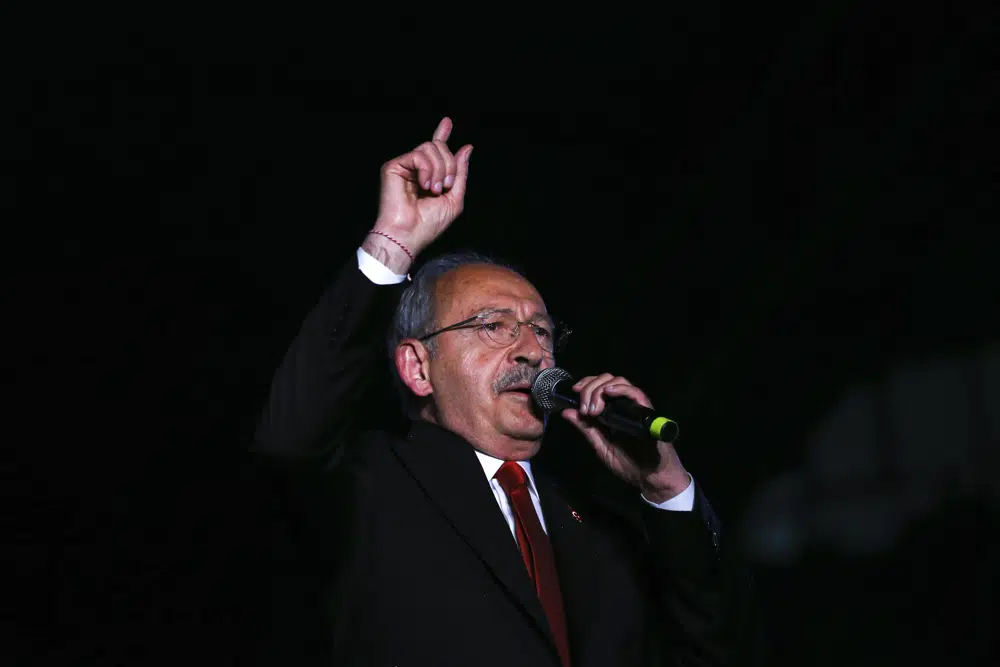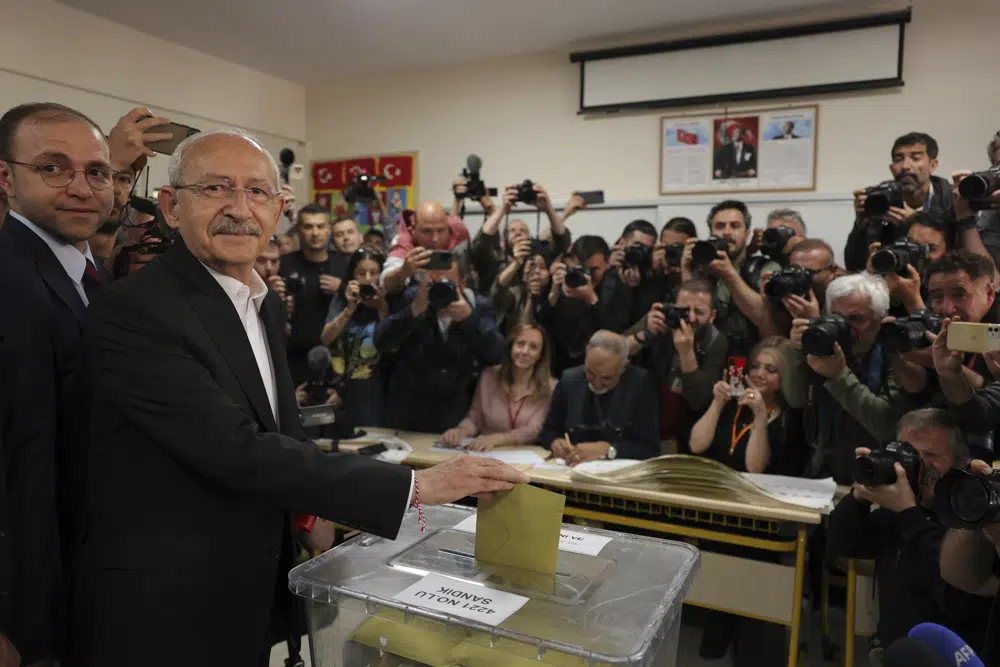Turkish President, Recep Tayyip Erdogan has disclosed that he could still win the elections but would respect the nation’s decision if the race went to a runoff vote in two weeks.
Erdogan said early Monday, May 15, 2023, “We don’t yet know if the elections ended in the first round. … If our nation has chosen for a second round, that is also welcome.” He noted that votes from Turkish citizens living abroad still need to be tallied. He garnered 60% of the overseas vote in 2018.
With the unofficial count nearly completed, voter support for the incumbent had dipped below the majority required for him to win the election outright.
“We will absolutely win the second round … and bring democracy” Kemal Kilicdaroglu, the candidate of a six-party alliance, said, arguing that Erdogan had lost the trust of a nation now demanding change.

Turkey’s election authority, the Supreme Election Council, said it was providing numbers to competing political parties “instantly” and would make the results public once the count was completed and finalized.
The majority of ballots from the 3.4 million eligible overseas voters still needed to be tallied, according to the board, and a May 28 runoff election was not assured. The Supreme Election Council says Erdogan is on 49.49% of the vote, with his rival Kemal Kilicdaroglu on 44.79%.
While Erdogan hopes to win a five-year term that would take him well into his third decade as Turkey’s leader, Kilicdaroglu campaigned on promises to reverse restrictions on free speech and other forms of democratic backsliding, as well as to repair an economy battered by high inflation and currency devaluation.
Erdogan has governed Turkey as either Prime Minister or President since 2003. In the run-up to the election, opinion surveys had indicated that he narrowly trailed his challenger, Kemal Kilicdaroglu.
Kilicdaroglu’s Nation Alliance pledged to return Turkey’s governance system to a parliamentary democracy if it won both the presidential and parliamentary ballots. It also promised to restore the independence of the judiciary and the central bank.
“We have all missed democracy so much. We all missed being together,” Kilicdaroglu said after voting at a school in Ankara on Sunday, May 14, 2023.

More than 64 million people, including the overseas voters, were eligible to vote and nearly 89% voted.
100 Year Republic
This year marks 100 years since Turkey’s establishment as a republic; a modern, secular state born on the ashes of the Ottoman Empire.
Mustafa Kemal Ataturk, a former Commander in the Ottoman army, founded the modern Republic of Turkey in 1923 based on a strict secular rule, a difficult task for a traditionally conservative society. Since then, the army has toppled four different governments which they saw as a threat to secularism.
For decades, the conservative portion of the country, devoted to Islamic values, felt a strong sense of oppression from the state.
Recep Tayyip Erdogan, who himself went to jail for threatening the secular state in 1999, has very slowly changed this strict secular rule since he came to power in 2003. He has gained something like unconditional support from the conservative sections of society.
As Erdogan cemented his position, he imposed more religious laws, as well as granting himself more authority. After 20 years at the head of the nation, some have called him Turkey’s most powerful leader since Ataturk.
READ ALSO: Turkey Holds Presidential And Parliamentary Elections




















